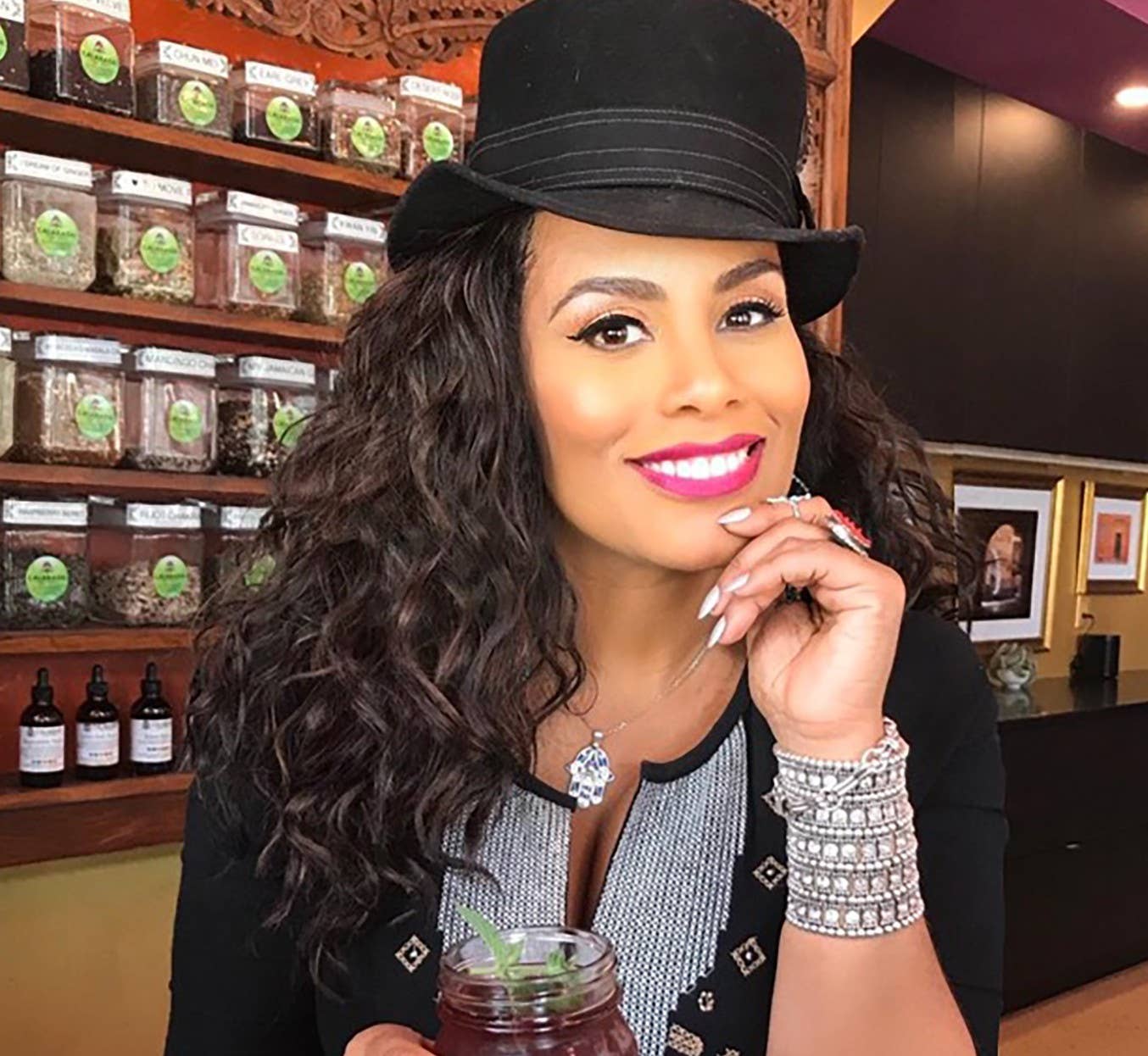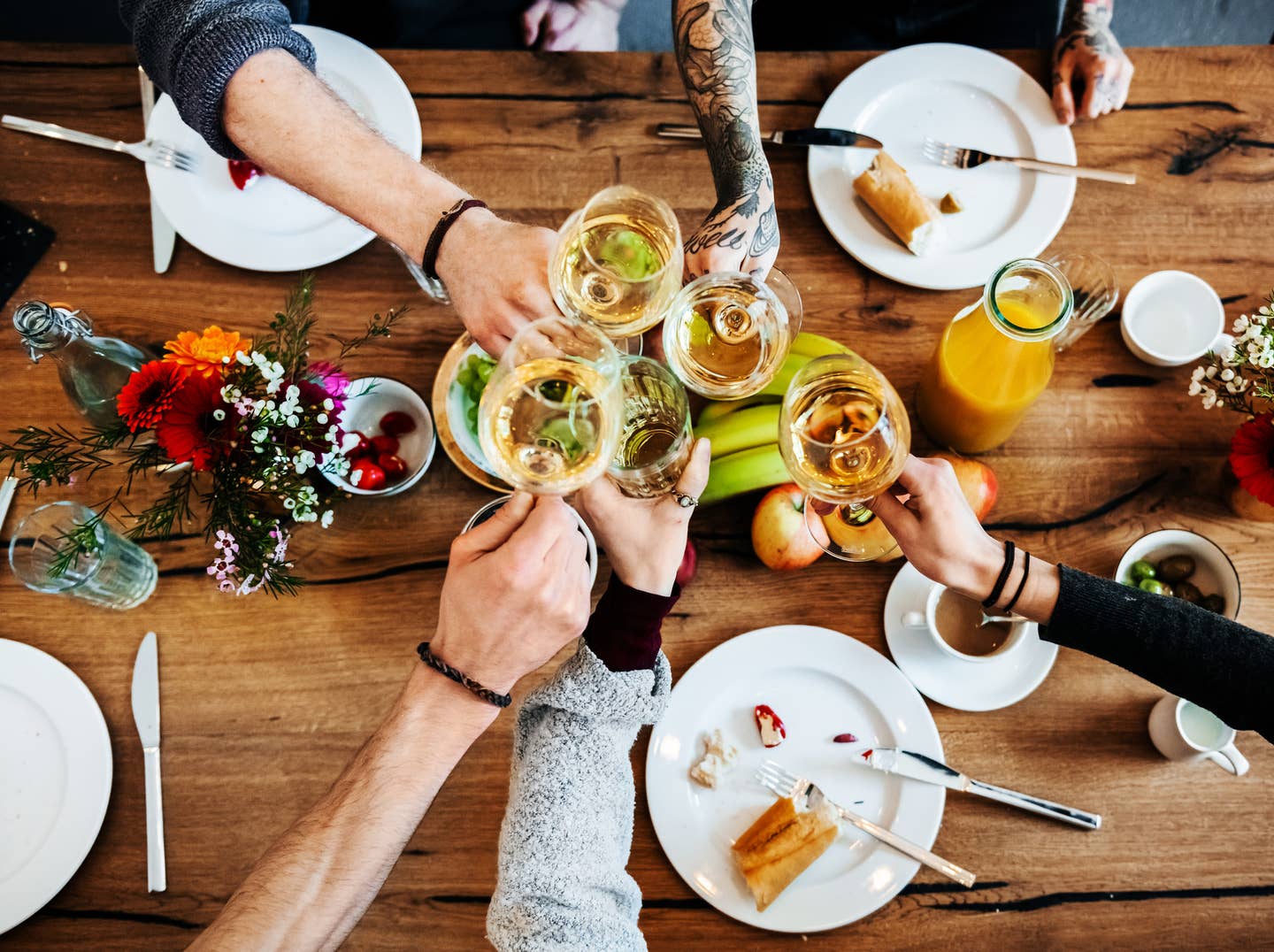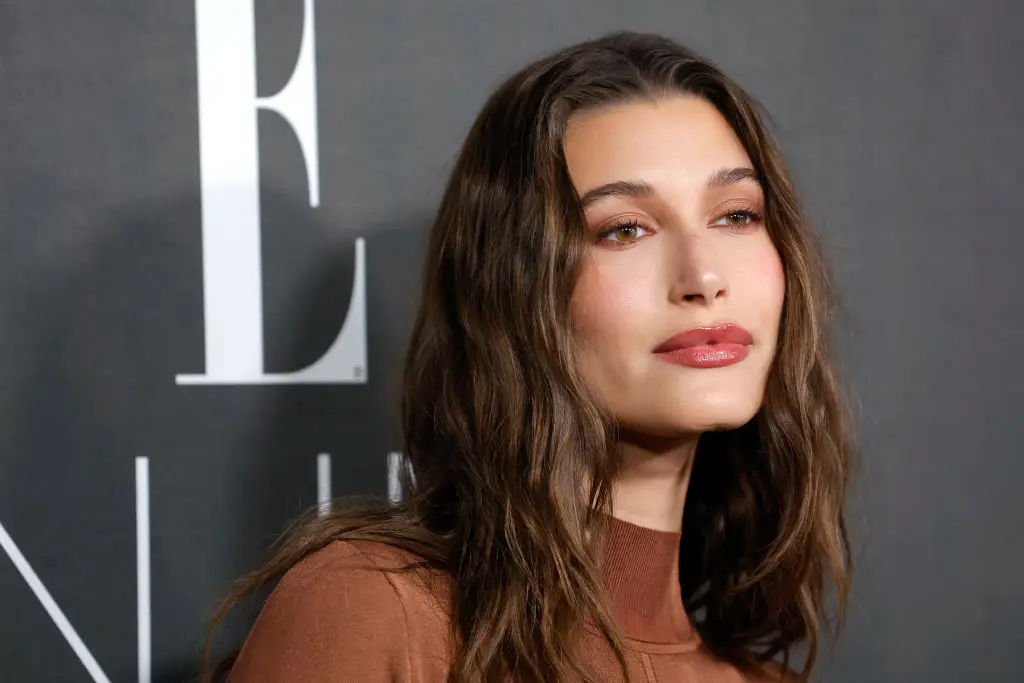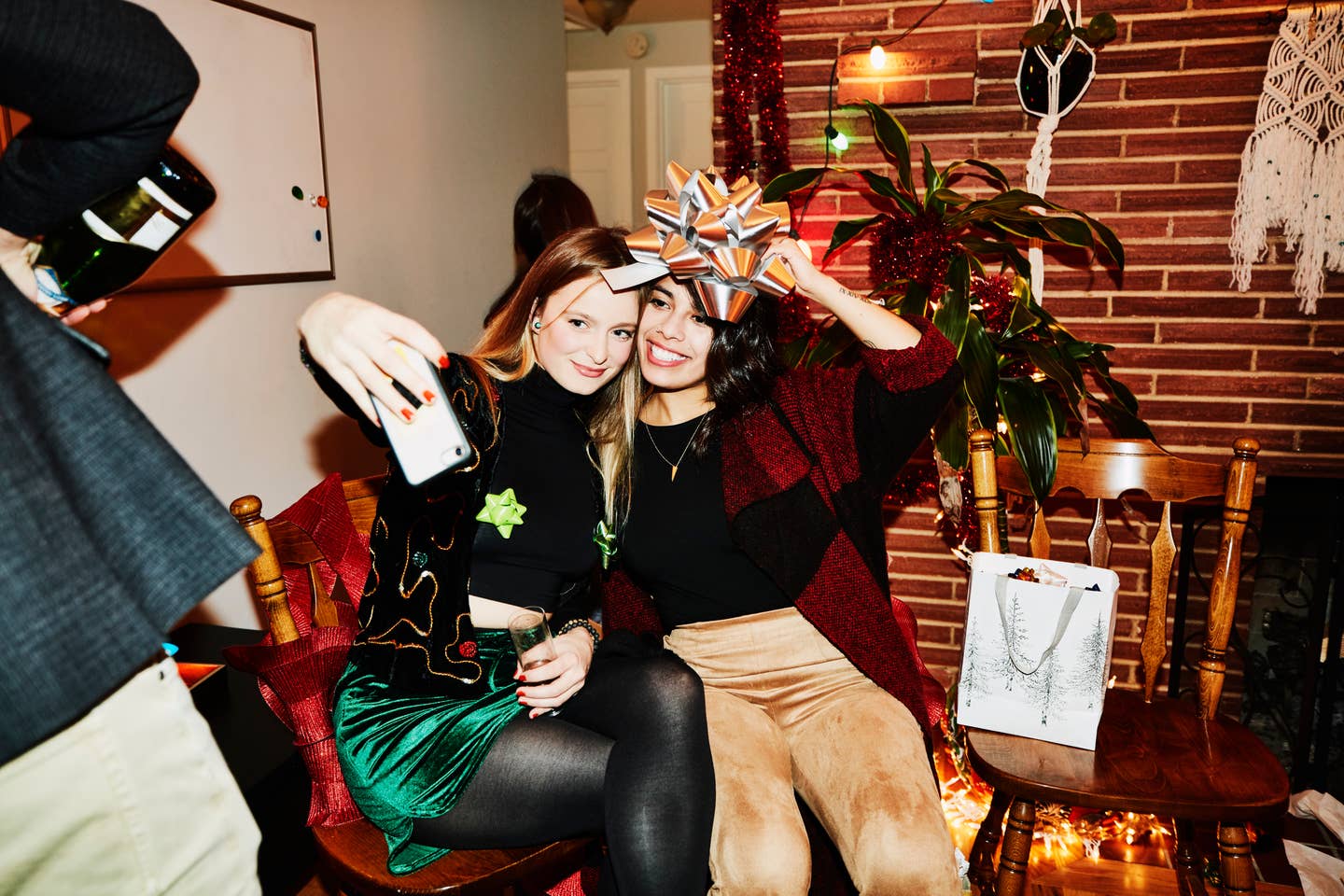
How Sunyatta Amen is Healing Her Community With Plant-Based Fare
Dr. Sunyatta Amen is a life-long plant-based eater: She's an Afro-Caribbean-Latinx and a fifth-generation master herbalist, naturopathic doctor, vegan chef, witch, and the entrepreneur behind Calabash Tea & Tonic in Washington, D.C. She comes from a multi-generational Black family, and in the 1970s, her Syrian-Jamaican and Cuban parents had a health food shop and juice bar, Pyramid Tea & Herbal, in Harlem, New York.
Here, in an exclusive interview with The Beet, we spoke with Dr. Amen about the tradition of veganism in her family, the importance of HBCUs to Calabash, and why she opened a tea shop to share veganism with her community.
The Beet: What was it like being raised in a multi-generational vegan family?
Dr. Sunyatta Amen: We were the weird kids at school. It’s hard when other people are having hamburgers and you brought a slab of tofu on a bun. My parents would try to mimic food that was served in the cafeteria but it looks different to kids. Kids are crappy to each other.
Fortunately, my parents had friends who were the same type of people. So at family gatherings, friends gatherings, there was always vegetarian food. Nobody thought it was weird. My parents taught me that if you have a certain diet, whatever that is, don’t be a pain in the ass. Don’t go to a party and get hangry, because you didn’t eat before you went and there's no food within the dietary confines of what you are doing. Eat before you go, a snack will take the edge off. Bring a dish. It’s my custom to bring some food everyone will enjoy. Not just bring my food with me, which I think is something all vegetarians do, which is awfully antisocial. The funny thing is anytime I walk into an event people run up to me, “What did you make? We want to taste what you did!”
And that's the interesting thing: Vegetarian food is the common denominator, it can be had by all. At a potluck, my food will always be gone. People are scraping the edges of the pan. It's a great opportunity to introduce people to those dishes. They ask for recipes all the time!
TB: Did you raise your children to be vegan?
SA: I raised my children as vegan/vegetarian. It's hard to say what they do now. Once people get to a certain age, my youngest is a flexitarian—she’ll be pescatarian, then she’ll go back to being vegetarian, then she’ll go back to being vegan, maybe she’ll have a piece of salmon here and there. My oldest is the same way. At first, it broke my heart that they didn’t just want to be vegan or pescatarian. At the same time I realized they were ahead of the game, they knew why we were doing this, the science behind this.
TB: Did your kids have a different experience than you did with taking their vegetarian food to school?
SA: Just slightly. My youngest, she is seventeen now, went to a school where kids would bring sushi for lunch. They were already aware of [other foods]. If she brought Thai food they were already acculturated to that or a veggie burger. My oldest one, forget about it, the number of times I found the lunch in the lunch bag, and it had just been sitting there. She was shy to take the lunch out because of what the other kids would say. So it took a long time. The only Asian food you would see is Chinese food and Thai food. That might be more familiar now. But then it was like what are those worms, what are you eating? Or avocados, what the heck is that? Some kids might know and some kids are like 'Ew!' but the minute you mash it into guacamole they’re like “Oh, I like that.”
I tried to make sure my kids' food looks attractive at the least. I used to do a lot of bento-style [lunches] so if there’s something they weren’t interested in they could leave it behind. It was something their friends wanted to try, they could share it. It was divided enough to make that happen.
TB: Did your parents explain to you from a young age why your family didn’t eat animal products?
SA: My dad’s a biologist and is vegan and my mom is principally pescatarian because you can take girls out of the island but you can take the fish out. My dad had a health crisis before I was born when he was in college. He was maybe twenty-two and he felt sick in his stomach, you know a gripping pain, he didn’t know what was going on. He must have passed out. He told me the next thing he knew, he awakened and he was in a hospital and there were doctors standing around his bed. He was a young man. They said to him, you had gallstones. He said, what? They said once we went inside, it was the teaching hospital so you get what you pay for, once we went inside we decided to just take the whole gallbladder out, he was just like what? Imagine being that young, having the gallbladder [removed], waking up, and the doctor saying, yeah that's what we did. And he said, but what caused this? They said we don’t know but we took it out. They left the room.
There was one Indian doctor in the room and he said to my dad, "If you say that I said it I’ll deny it: The truth is we are seeing this a lot more in India too. This is the overuse of meats, of animal products. Those animal fats are causing problems." My dad decided that day to become vegan. That very day. Pain is a heck of a motivator.
TB: What did your parents teach you about the morals of veganism going beyond just the food that we eat?
SA: I grew up in the traditions of Santería, African, and Native American diaspora traditions where if you were going to eat something it really was respectful if you had killed it yourself. If you had asked their permission, you saw the life, you respected it and then you ate it. There was no honor in picking something up at the store in plastic wrap, and not knowing how the animal was killed, how it lived, was it honored, was it thanked for its life? This kept me, as a city dweller, from even considering eating meat that I didn’t know the source of.
That mentality also extended to vegetables and sourcing. Our farmers market was the store we used as a grocery store. It was a health food store where my parents would work one hour a week, volunteering their time. Then you get a box of fruits and vegetables. Both of my parents were employed, they were university professors, but they just believed in the mission of that.
TB: How did your parents plant the seed for you to become a vegan entrepreneur?
SA: My dad owned a juice bar. It was a health food, herbs, supplemental herbs. I probably owe my health to that. I owe my dad a lot for that. I was probably breathing in those herbs, that's probably why I didn’t ever get sick. Things people are hip on now, maca and turmeric, was our baby food. It was all over my fingers every day, but then also what I owe my parents is the idea that health can be a job, an industry. Now I have businesses that revolve around that and is pretty much a reimagination of what my parents were doing.
TB: Why do you think veganism is growing rapidly in the Black community in the United States?
SA: We’ve already had a whole culture of vegetarianism. My mom’s family is Jamaican, there's an entire culture there where the food is called, Ital. Which is all vegetarian, you use very little salt, it’s extremely fresh and very clean, using coconut creams as your gravy instead of flour.
We already have traditions steeped in that, even in the United States. African American folk in the South, as we go back to what I was saying, people kept their own animals and slaughtered their own animals. Maybe ninety percent or ninety-five percent of their plate was vegetables, roots, other kinds of things, it was non-meat. So ninety-five percent of the plate was plant-based. And then maybe a chicken was slaughtered, or you got it from a farmer nearby on a Sunday. That one chicken would have to feed eight or ten people. It would go in a stew. The stew is principally vegetables and then you have a bit of animal protein.
So, when we talk about Black folk eating vegetarian food or switching their diets it was already there. What was mostly happening is we season food. Whether it's pigtail or neckbone. None of those things have a lot of meat on them. It was just there to season food with the smokey flavor.
What I’ve noticed when people of color explain why this works better for them, especially with societal-induced ills, whether it's diabetes or the stress that causes the eating of certain comfort foods.
Once that's explained to them and why this works better and how they’ll feel better, and then they see that they never go back. It's rare to hear folks say yeah I used to be vegetarian or vegan. If it works, it works. We’re seeing higher rates of diabetes, hypertension, and cancer rates. We as people want to solve that, and we know diet is very related to that.
TB: How has being vegan impacted your overall health?
SA: My kids never spent a day in the hospital. I remember getting the cold or the flu maybe twice in my whole childhood, all the way through college. I just never got sick. It's probably been six or seven years since I had the flu. I attribute that to my diet, you know when people say, I can’t believe you are the age you are.
TB: What motivated you to open Calabash?
SA: I felt like people needed a pharmacy. They needed something sexy and attractive like a bar. You know the colors are carefully chosen in those places. The wood finishes, and the floors, and the lighting. Food establishments that are plant-based tend to be all Birkenstocks. I wanted it to be sexy.
Taking healthy out of Birkenstocks and sliding it into stilettos. So, no one had to feel, oh I can't go on a first date to this place. I have to go to a bar—bar food is just so unhealthy. It's just something salty, something fried, whatever, even if it's these pubs, these brewpubs.
Vegan food needs to be attractive, the surrounding needs to be attractive, and the food needs to taste great. It needs to stimulate all five senses. When people walk in it should smell great, look great, the feel of the fabrics is great, all of it needs to be there. Then people are converts.
TB: What has the importance of Calabash been to Howard and other HBCU students?
SA: A really great example is one of our folks, Ali, who works with us and started as a freshman with just his backpack. Now he’s graduated from Howard, is married, and has a baby and one on the way. He closed on his house four months ago, which is a feat, in the middle of a pandemic. This is what we are committed to. Our whole staff is doing great, doing better, and this is an attitude that you find at HBCUs. There’s a family aspect, so your professors become aunts and uncles, the lady in the financial aid is like an auntie to you, they want at an HBCU to see success.
We are also committed to HBCU graduates. We see students as younger siblings or as our children. That's the attitude we have at Calabash. We want to foster their hopes and dreams. We want to take someone with a backpack on and make them a homeowner. We see the students who come in.
We had students come in tears. I can’t tell you how many times that's happened. They’ve said “Oh, my financial aid didn’t come through” and we’ve taken money out of our pockets and covered what needed to happen, and got it straightened out.
There’s a caring that’s the underpinning of what my parents gave me. My mom was Black Panther and my dad was an activist. They went to NYU and Columbia. I’m the first HBCU person in my family—FAMU to be exact.
My parents gave me the idea of business activism. That activists aren’t just marching on front lines, that there’s also how you can use something as a cornerstone in your community for the greater good. My father used to say, any King or Queen of a village, is only as happy as their most miserable tribe member. So if you have someone in your midst and they’re unhappy, there's no way to feel good in your spirit and you have to solve that problem.
When we have elders come in, we make sure they’re served, not asking them for a dime. Even though they try to pay, we are in their neighborhood really, where they have grown up and played, and it is our honor to serve them. We run Calabash like a village. We insist on that level of respect between patrons, and it's just in the air. It isn’t something we even have to say, but it's the same attitude you find at an HBCU. It is a supportive, safe space if you need something people can ask, and even if you don’t ask people can see that they’re upset or in tears, and we are like what is going on? Because we care.
More From The Beet






